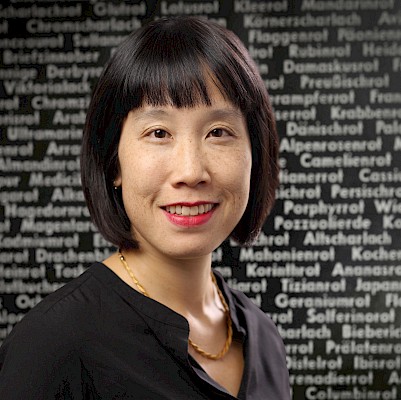Jenny Chio is a cultural anthropologist and ethnographic filmmaker at the University of Southern California. In her research and teaching, she explores subjectivity, collective memory, and modernity, with an emphasis on understanding race, ethnicity, and cultural heritage as powerful categories in the contemporary world. She investigates these issues through long-term ethnographic fieldwork on independent and vernacular media practices, urbanization and the transformation of rural landscapes and livelihoods, and cultural tourism in the People's Republic of China. Her publications include a book on ethnic tourism and rural social change in Southwest China, as well as numerous articles and book chapters on vernacular video-making, bullfights, Miao festivals, and ethnic politics. Her films include "农家乐 Peasant Family Happiness" (2013) and a work-in-progress, currently titled "These Days, These Homes." More details on her research, teaching, and scholarship can be found on her website: www.jennychio.com.

Jenny Chio
jchio[at]usc.edu
Vita
Fields of Research
vernacular media; archives; public memory; cultural heritage; infrastructure; life history; China
Project outline
Cultural Heritage as Infrastructure: Public Memory, Vernacular Media, and the Building of an Archive
My Morphomata research project in 2020 will explore how institutional structures, from museums and archives to oral history projects to UNESCO categories of individual “cultural transmitters,” link individual biographies and life histories to collective forms of shared public memory and experience. I am particularly invested in using the theoretical framework of infrastructure to conceptualize the connections between individual and collective social biographies and biographical memory. This project investigates and theorizes cultural heritage from a distinctly anthropological, “ground-up” perspective by examining “individual” forms of memory making, such as oral histories and biographical writing, in relation to the practices and politics of public memory institutions, such as museum and archives. Moreover, this research brings critical cultural heritage studies into conversation with arguments and approaches from infrastructure studies and media archaeology. I conceptualize cultural heritage as infrastructure in order to explore the political, material, and social bases of heritage discourses and technologies, or, in other words, the modes of creating, consuming, and institutionalizing “cultural heritage” in the world today.
Publications (Selection)
Forthcoming in 2019. "The Miao Festival Crowd: Mediations of Presence, Body Politics, and an Ethnic Public in 'Minority' China." Current Anthropology.
2018. "From the Stadium to the Screen: Bullfights and their Mediated Afterlife in Southwest China." Asian Anthropology 17(4): 254-275.
2017 "Video Documentary and Rural Public Culture in Ethnic China." In Asian Video Cultures: In the Penumbra of the Global, Joshua Neves and Bhaskar Sarkar, eds., 35-53. Durham: Duke University Press.
2017 "Rendering Rural Modernity: Spectacle and Power in a Chinese Ethnic Tourism Village." Critique of Anthropology 37(4): 418-439.
2017 "Introduction: Rural as Space and Sociality." Critique of Anthropology 37(4): 361-363.
2017 "Guiding Lines." Dispatches, Cultural Anthropology website, May 2. https://culanth.org/fieldsights/1118-guiding-lines
2017 "Rural Films in an Urban Festival: Community Films and Cultural Translation at the Yunnan Multi Culture Visual Festival." In Chinese Film Festivals: Sites of Translation, Chris Berry and Luke Robinson, eds., 279-299. New York: Palgrave MacMillan.
2014 A Landscape of Travel: The Work of Tourism in Rural Ethnic China. Seattle: University of Washington Press.
2014 "Fieldwork, Film, and the Tourist Gaze: Making 农家乐 Peasant Family Happiness." Visual Anthropology Review 30(1): 62-72.
2013 农家乐 Peasant Family Happiness. Digital video, 71 minutes. Berkeley Media, LLC.